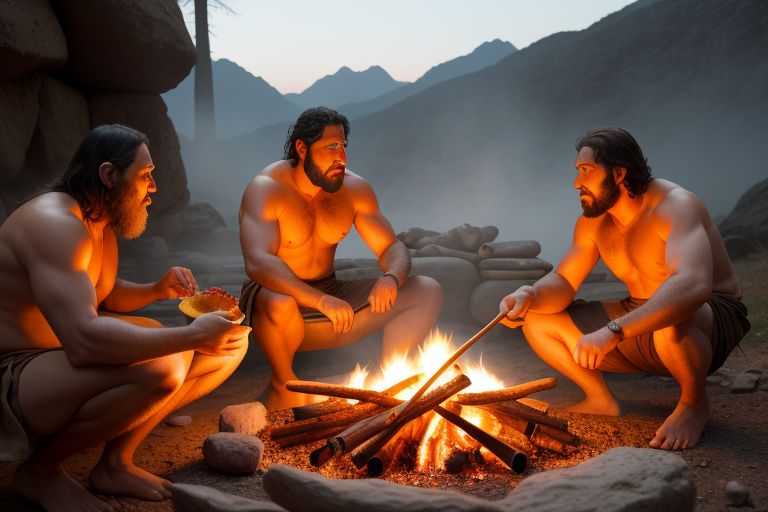
I have no dog in the evolution debate because I’m not a biologist nor a theologian, but I do have loosely-held ideas—intuitions, really—not based on scientific study by nature but still relevant and true (to a degree) to me, internally.
This article on the romanticization of “natural” food, from the leftoid Jacobin site, provides an interesting clue. A apropos section:
Natural was usually indigestible. Grains, which supplied from fifty to ninety percent of the calories in most societies have to be threshed, ground, and cooked to make them edible. Other plants, including the roots and fibers that were the life support of the societies that did not eat grains, are often downright poisonous. Without careful processing green potatoes, stinging taro, and cassava bitter with prussic acid are not just indigestible, but toxic.
Nor did our ancestors’ physiological theories dispose them to the natural. Until about two hundred years ago, from China to Europe, and in Mesoamerica, too, everyone believed that the fires in the belly cooked foodstuffs and turned them into nutrients. That was what digestion was. Cooking foods in effect pre-digested them and made them easier to assimilate. Given a choice, no one would burden the stomach with raw, unprocessed foods.
So to make food tasty, safe, digestible and healthy, our forebears bred, ground, soaked, leached, curdled, fermented, and cooked naturally occurring plants and animals until they were literally beaten into submission.
To lower toxin levels, they cooked plants, treated them with clay (the Kaopectate effect), leached them with water, acid fruits and vinegars, and alkaline lye. They intensively bred maize to the point that it could not reproduce without human help. They created sweet oranges and juicy apples and non-bitter legumes, happily abandoning their more natural but less tasty ancestors.
It goes on as such. Assuming that Laudan’s facts are correct, and I have no reason to doubt that they are, a question arises: if humans had successfully evolved in much the same way other organism have, why do humans have to put so much effort into making things edible? If the organisms from which humans evolved didn’t have to apply an inordinate-seeming level of logical process to “food” as we do now, how did it occur that humans are biologically tasked with doing so? Wouldn’t a (truly) natural consuming of the raw materials, the kind of vegetations and animals that other organisms are observed to eat now, be the de facto state of things, and wouldn’t it have remained as such, evolving alongside the pre-homo sapien as they made their way into into modern humans? The idea that we have had to utilize a primitive form of modern science to process natural resources for something so basic as eating, on the surface, contradicts microevolutionary theory for humans specifically. It’s as though humans, if I want to phrase it dramatically, were thrown onto the planet ex nihilo to figure out how to fend for themselves.
To be more specific here, I believe creation probably began and progressed via one of the current pseudo-scientific* theories we all learned in school, but that humans were directly created by supernatural mean. I had originally thought this was called the very vague and unhelpful theistic evolution, but in reading its definition, it doesn’t address this idea specifically. But, as I’ve stated before, I hold this belief very loosely and not opposed to something different.
* “Pesudo-scientific” here isn’t the derogatory term, but an actual description of it. Origins of the universe and evolutionary theory are a mix of science and non-scientific conjecture or predicate logic. True, the scientific process always embodied predicate logic to sort of “fill in” gaps in knowledge until more raw information came in, but it’s my view that evolutionary theories contain too much of this type of inferential knowledge to be considered purely scientific.